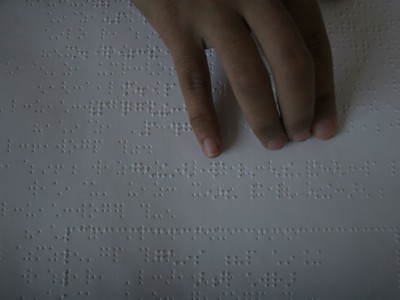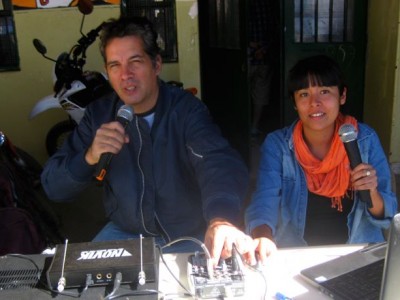Twelve years ago Jeremy Hockenstein from United States traveled to Cambodia and was struck by the poverty. He saw a lot of possibilities among the youth in that South Asian country. Jeremy thought that English and Computer skills can empower unemployed youths who can make a difference.
Inspired by the IT outsourcing success of India Jeremy co-founded Digital Divide Data by establishing a Data Entry operation in Cambodia in 2001 focusing on youths from the poorest and most under-served segments of the population. DDD provides opportunities for orphans, rural migrants, and the disabled and thus is different than other business houses.
 Over the years Digital Divide Data has grown into an internationally recognized nonprofit social enterprise. Digital Divide Data powers the data entry, XML conversion and digital preservation needs of publishers, libraries, content hosts, academic researchers and businesses world-wide. DDD and its hundreds of staffs now serve clients in the United States and Western Europe from offices in Cambodia, Laos and Kenya and have trained more than 1800 individuals so far.
Over the years Digital Divide Data has grown into an internationally recognized nonprofit social enterprise. Digital Divide Data powers the data entry, XML conversion and digital preservation needs of publishers, libraries, content hosts, academic researchers and businesses world-wide. DDD and its hundreds of staffs now serve clients in the United States and Western Europe from offices in Cambodia, Laos and Kenya and have trained more than 1800 individuals so far.
The DDD program trains new entrants for 3–8 months to develop their basic computer and English skills. Those who can finish the training with high standards become eligible to join the organization. To fit well with DDD, the successful trainees need to not only meet the role’s technical requirements, but also be passionate about its social mission. Then they work on real projects as employees for 6 hours a day and carry on with further education for 3-4 years. Here is the flow of the proceedings:
Chenda Chhay was among the first group of data management operators at DDD. She shares her story:
I don't know where the next few years will lead me – getting an advanced degree from abroad, starting to outsource my accounting work, working to develop my country. All I know is I am committed to what I'm doing now and that I thank God for the people who supported DDD and gave me the chance to follow my dream.
Bun Sokha started as a guard at DDD's Phnom Penh, Cambodia office in June 2007. He has advanced into an operator role over the years and acknowledges:
DDD is not only the place that gives a good opportunity to disadvantaged group of people but also a warm place to be.
Jeremy Hockenstein tells in an interview that one of the challenges DDD face is the lack of human capital to run its operations. So it has to grow and develop the management experience itself.
Here is a video describing Digital Divide Data's works:
DDD has been ranked #28 in the Global 100 index of top 100 NGOs of the world.
With a self-sustaining non-profit model that re-invests revenues back into the company, Digital Divide Data has a significant impact – ‘graduates’ go on to earn more than four times the average regional wage, while the organization is currently the largest technology employer in Cambodia and Laos.
Browse DDD's media gallery to learn more.





5 comments
I really like such source of social participation where people are switching to have some garner income for livelihood while working and learning. I really appreciate your hard work.
We are really inspired by your work, for we have undertaken very similar approaches in Georgia (South Caucasus). Our country became weel-known abroad through elitarian clubs at social media, but our rural communities, especially in remote location are far beyond thse developments. The HBS recently reported about digital divide inside our population. We satrted to tackle these problems and the scope of work make us some times “tired”, for apart the “normal” rural poverty we are facing some times extreme poverty manifestation in IDP settlements i.e.. Your experience really encourages us. Moreover, we would need probably to learn a lot from you!